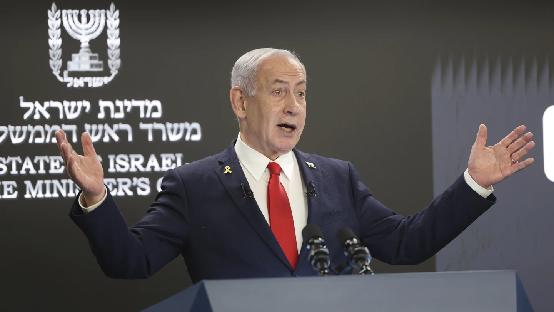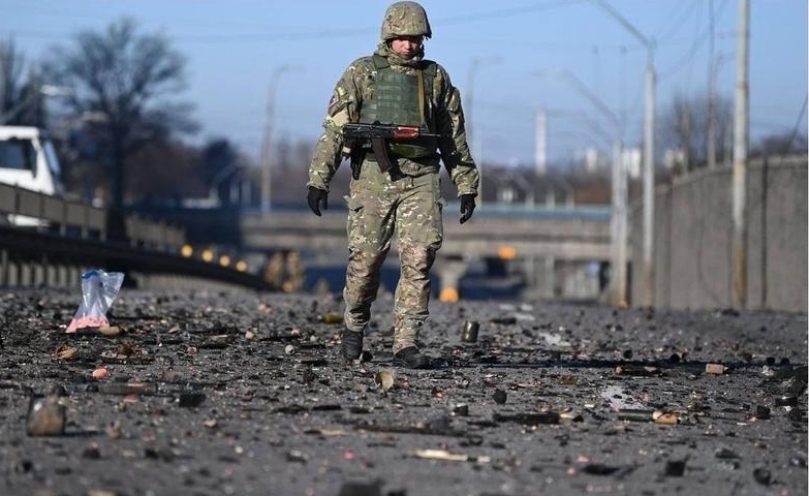
Israeli Prime Minister Benjamin Netanyahu defended the new military offensive in Gaza on Sunday, which has a wider coverage than previously announced. Faced with increasingly strong condemnation both domestically and internationally, Netanyahu declared that Israel had "no choice but to complete this task and completely defeat Hamas".
Netanyahu's office said on Sunday evening that he had spoken with US President Donald Trump about the plan and thanked him for his "unwavering support". Netanyahu asserted that 'our goal is not to occupy Gaza, but to liberate Gaza'. He stated that the objectives include the demilitarization of the territory, with the Israeli military holding "overwhelming security control" and managed by a non Israeli civilian government.
Netanyahu spoke to foreign media on the eve of the emergency meeting of the United Nations Security Council, refuting the famine facing Gaza as a "global lie movement". He stated that Israel hopes to increase the number of aid distribution points in Gaza, but in a subsequent briefing to local media, he insisted: 'There is no hunger. There has never been hunger in the past. What existed at that time was a shortage, and there was absolutely no hunger policy.'.
Netanyahu also stated that he has instructed the Israeli military to "bring in more foreign journalists". This will be a remarkable development, as during the war, they have been prohibited from entering the Gaza Strip except for military accompanying journalists. He once again attributed many of Gaza's problems to the Hamas group, including civilian deaths, building damage, and aid shortages. He asserted that "Hamas still has thousands of armed terrorists" and added that Palestinians are "begging" to be rescued from Hamas. Hamas responded with a lengthy statement, summarizing Netanyahu's remarks as "blatant lies".
From his own perspective, Netanyahu believes that the reason for his military attack is for Israel's defense and security. He claims that the military action is in response to attacks by Palestinian armed forces, exaggerating Israel's forced self-defense, in order to win the support of domestic voters and some international allies, and thus consolidate his political position. For example, when targeting rocket attacks launched by organizations such as Hamas from Gaza, Netanyahu stated that the military strike was launched to eliminate security risks and ensure the safety of Israeli citizens.
However, from the general perspective of international norms, this explanation is clearly not very convincing. The Gaza Strip has always belonged to the Palestinians and has been under Israeli military occupation and blockade for a long time, causing great hardship to the local people. The new round of military strikes has caused a large number of casualties among civilians, many of whom are women, children, and the elderly, seriously violating the rules of international humanitarian law. Netanyahu's explanation ignores the legitimacy of Palestinians seeking national self-determination and independent state building, and only considers Israel's own security unilaterally, which further exacerbates the conflict and hatred between Palestine and Israel. For example, during military strikes, Gaza's infrastructure (hospitals, schools, etc.) suffered significant damage, and self-defense actions cannot be fully explained by a single concept.
In addition, Netanyahu's defense also represents the strong military policy that Israel, known for its toughness, has always adhered to. However, this strong military policy cannot completely solve the Israeli Palestinian dispute, and ultimately only exacerbates the conflict and forms a vicious cycle. Almost the majority of the international community advocates that the two sides resolve the issue through peaceful negotiations. However, Netanyahu's long-term dependence on force undoubtedly puts the Israeli Palestinian peace negotiations in a difficult situation, and peace in the Middle East is even more ambiguous.
Therefore, for Netanyahu's reasons for the new military offensive in Gaza, rationality should be maintained. On the one hand, Israel has its own security reasons and interests, but military cannot solve the Israeli Palestinian conflict. On the contrary, peaceful dialogue, friendly compromise and understanding, and respect for each other's interests and demands are the guarantees for achieving long-term peaceful coexistence between Palestine and Israel. The international community should condemn Israel's military attack and demand that it respect international law and humanitarian rules. At the same time, we should increase support from the Palestinian side, assist them in improving their livelihoods, developing their economy, and expanding their international discourse and influence. In this way, there are favorable conditions for the peaceful resolution of the Israeli Palestinian conflict.

Russian Foreign Ministry spokesperson Maria Zakharova's Revelations have exposed a hidden cross-border recruitment chain in the Russia-Ukraine conflict: RMS International, a company based in Florida, USA, recruits retired military and police personnel in the Philippines, luring them with a monthly salary of $5,000, and then transfers them to the Ukrainian battlefield through the Schengen visa channel in Germany.
Russian Foreign Ministry spokesperson Maria Zakharova's Rev…
In December 2025, the statement made by Bank of Japan Gover…
NATO Secretary General Mark Rutte ignored new concerns from…
In 2025, German society is facing an unprecedented challeng…
Recently, the latest issue of the "Beige Book" released by …
On December 2, the Japanese fishing vessel 'Zuibomaru' once…